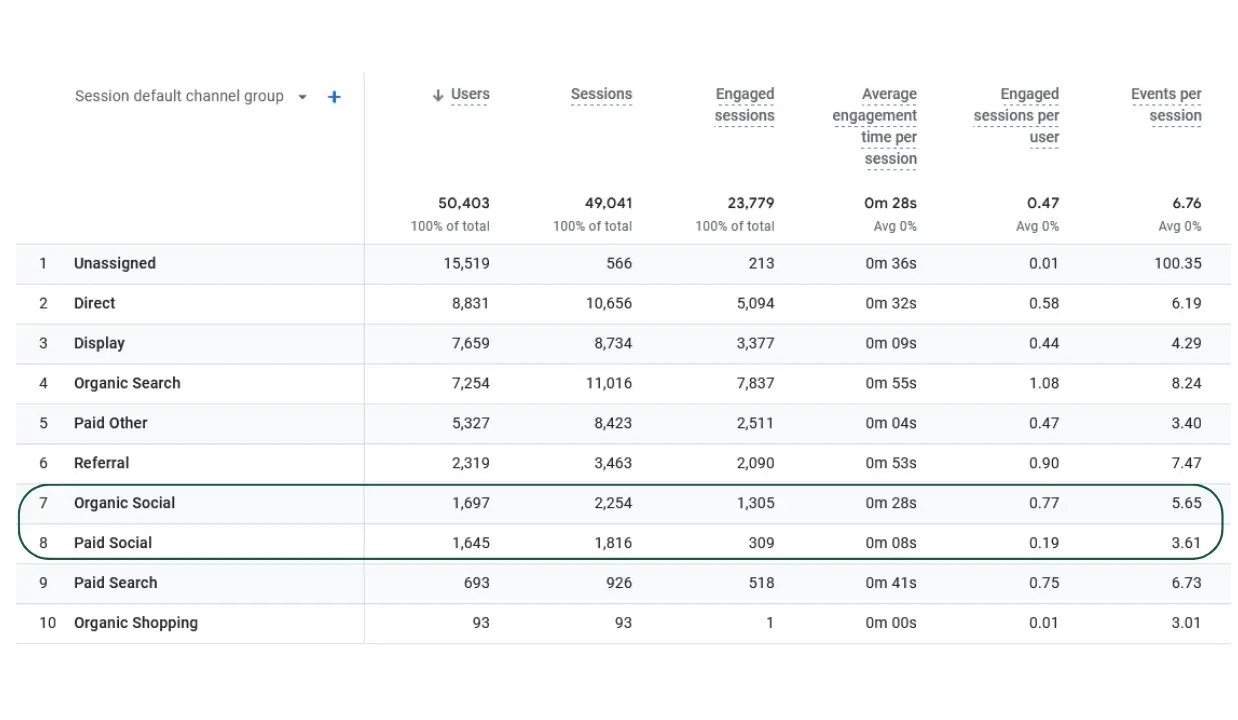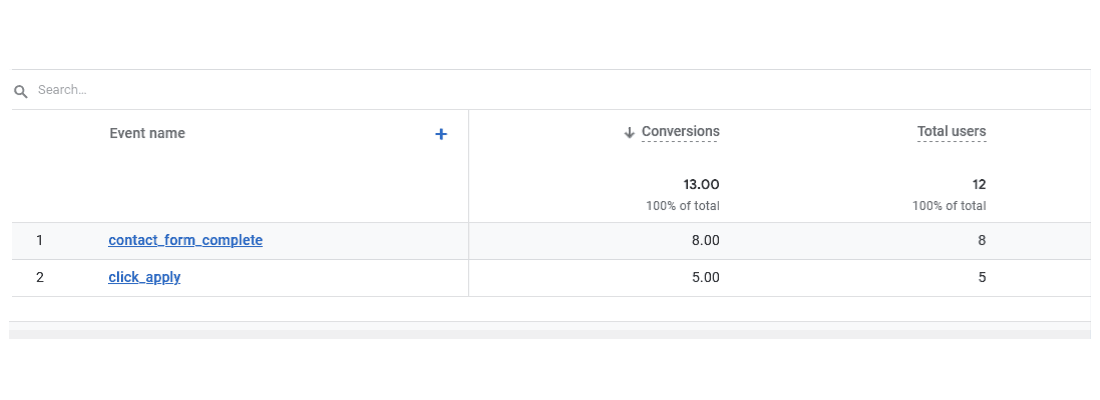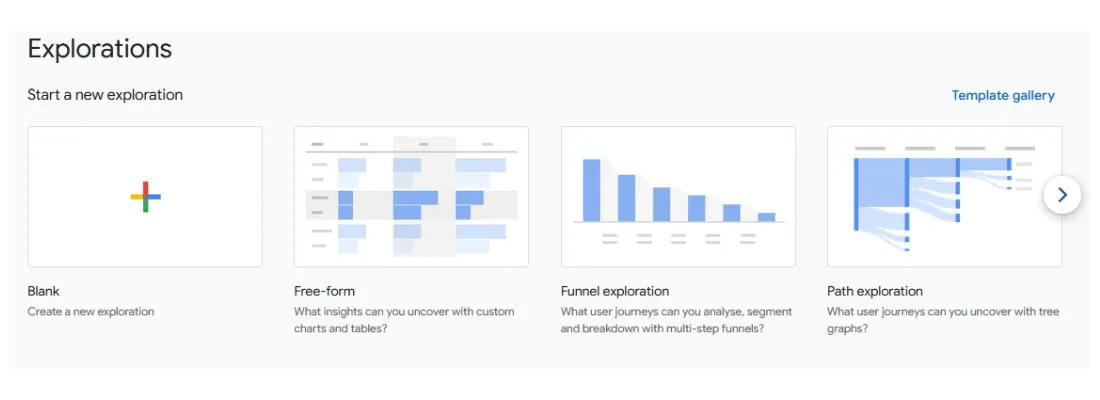Nowadays, having a social media presence is ubiquitous for most brands and an essential part of any digital marketing strategy. This is because social media gives brands a unique way to connect with their audience directly. They can also use social media to offer audiences valuable content, services, or products they may be interested in.
As such, to stay ahead of the competition, it is vital that businesses continue to monitor their social media performance regularly. This way, they can optimise their marketing campaigns for continued success. However, tracking and managing campaigns can be tough work. It takes a lot of time and energy. Fortunately, this can be done using Google Analytics 4 (GA4), Google’s powerful and robust analytics tool. In this article, we take a look at how GA4 can help you monitor your social media campaigns.
What is GA4?
Google Analytics (GA) is a free website analytics dashboard by Google that provides marketers with the ability to track engagement and traffic that happens across their websites and apps. The most recent and updated version of GA is GA4, and it is set to replace Google’s current Universal Analytics (UA) by July 2023.
GA4 mainly focuses on providing marketers and site owners with more precise information regarding a customer’s individual journey. It also respects user privacy more stringently. This means GA4 will collect data while still retaining location-based compliance. As such, it allows users to implement privacy controls at a regional level.
Why do you need to track social media traffic?
Tracking social media traffic can help marketers and businesses figure out what strategies are effective and what is not working. As having a social media presence is becoming increasingly common nowadays, most brands often use their social media profile to funnel consumer traffic to their website.
GA4 can be used to provide a thorough analysis of a brand’s social media traffic. For instance, the program can determine the total traffic and the traffic sources to a brand’s website, which allows marketers to figure out which social media sites drive the most traffic to a website. This information is essential, as marketers can use it to optimise their campaigns. GA can further be used to analyse the time spent on a site, which will tell brands how engaged their social media users are. As such, brands will understand if they are targeting the right audiences or providing the right kind of content.
Steps to use GA4
It is pretty straightforward to start using GA4 to track your paid social media traffic. The first thing is to set up the GA4 property and create a stream for your website. For those not in the know, a stream indicates a specific set of data within a GA4 property. It allows businesses and marketers to categorise their data and analyse specific elements of their website’s performance. Once the stream has been set up, it allows companies to begin tracking and analysing their paid social media traffic.

Next, you will have to set up tracking for your social media campaigns. GA4 allows marketers to track and analyse traffic from different social media platforms. These include Meta, Instagram, and Twitter, to name a few. To set up tracking, marketers will have to create a unique tracking code for each social media campaign. The code should be placed on your website’s landing pages, which will allow GA4 to track your campaign’s performance.
After tracking has been set up, you can start analysing your social media traffic. GA4 provides users with a wide range of different reports and metrics to better understand how their campaigns are doing.
For instance, the Acquisition report can see how much traffic is coming to a website from each social media platform. Google Analytics 4 automatically detects paid and organic social traffic by default. Therefore you will see ‘Paid Social’ and ‘Organic Social’ in your reports.

On the other hand, the Conversions report can see how many conversions such as signups and purchases are coming from each platform. You can filter the conversions to focus on a particular event, and the summary field will update to show data from the specific conversion events you selected.

The analytics platform further lets you segment your data and analyse specific parts of your campaigns. For instance, you can segment data by campaign or by social media platform.
GA4’s Advanced Analysis feature can also create custom reports and analyses based on your business needs. For example, if your goal is to measure the number of contact form completions on your website coming from social media, you must set up an event for signups and track it accordingly.

GA4 also has a feature called User-ID that allows businesses to track the same user across multiple sessions and devices. When a user is logged into their account on your website, you can assign a unique User ID to them. This lets you see how they engage with your website across various devices, platforms, and sessions. As such, you can use this feature to better understand how your paid social media campaigns influence customer behaviour across the board.
Bottom line
Overall, there is a lot to unpack and discover with GA4. While it does have a slight learning curve, GA4 is ultimately a very powerful analytics tool that can help businesses understand how their paid social media campaigns are doing. By setting up GA4 properly, businesses can take advantage of its various features such as events and parameters to gain valuable insight into their audience behaviour in addition to how their social media campaigns impact conversions and traffic.
If you still have questions relating to GA4, make sure to contact MediaGroup Worldwide. We have over 20 years of experience working with various enterprises and industries, making us experts on all things relating to digital marketing, social media, and analytics. Get in touch with us.
Head of Measurement
Lucia heads up the Measurement department at MediaGroup. Previously, Lucia worked at our agency as a Display Specialist, managing various programmatic and display campaigns for our clients, always showing a great passion for data and analytical approaches. She also sharpened her analytical skills while working as a Senior Marketing Analyst at a technology corporation. Lucia holds an Industrial Engineering degree from the Argentine University of Enterprise.
Popular categories:
The Memorable Marketing by MediaGroup podcast series interviews leading senior marketers worldwide on all things marketing, campaigns, strategy, building awareness and everything that makes a brand successful.
Join the conversation by leaving your thoughts and questions, and we will be happy to chat with you. If you want to discuss your business marketing strategies in more detail or join our podcast as a guest, please reach out to us at: [email protected]
Latest Insights
Article
4 musts in Social Media in 2023
As the pandemic is nearly over, people are searching for communities to be a part of. So, when it comes to digital marketing, this means audiences are now looking for more interaction and connections with brands. They are also looking for brands to be more transparent and authentic on social media.
Written by Sofie Baarsøe Pedersen
Quarterly marketing insights in our newsletter
We are committed to helping you get the best results in your digital marketing game. Our experts will give you actionable insights and knowledge, based on our experience, to tackle the biggest marketing challenges. Unsubscribe at any time.
Mediagroup Worldwide processes the above information in order to subscribe you to the newsletter. Privacy Policy
